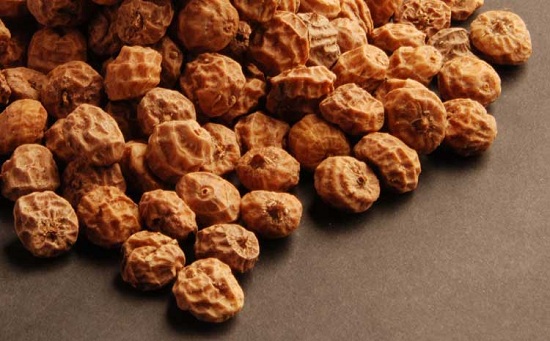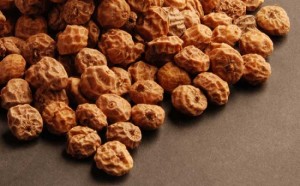By Nehi Igbinijesu.
For almost everything you find in Africa, little or nothing is known of its value until white people tell us. That had been the case until now; a curious case of apathy for knowledge. From the aqua petroleo in Equatorial Guinea to beautiful black silt on the grounds in Itakpe, Nigeria, I have come to believe that the black race has not applied itself in knowledge at all. We in Africa literally walk on billions of dollars every day without even knowing. But what hurts more, is the abject refusal to learn. The acculturation for many of us has been to go to school, graduate and get a job.
This article is about one of those things you find on the streets in a lot of Nigerian cities. I guess you might have come across these tiny nut-like tubers wheel-barrowed by Nigerians and sold in little polythene bags. Some call it ‘Chufa sedge’ and others, ‘earth almond’. However, in Nigeria, we know the Cyperus Esculentus by many names: the Hausas call it, ‘Aya’, the Yorubas call it ‘imumu’ and the Igbos call it, ‘aki hausa’. In plain terms this local snack is known as ‘tigernuts’.
Beyond being a snack, Tigernuts have very large potential for cash because of their commercial value. Tiger nuts have long been recognised for their health benefits as they are high in fibre, proteins, and natural sugars. They have a high content of soluble glucose and oleic acid. Along with a high energy content (starch, fats, sugars and proteins), they are rich in minerals such as phosphorous and potassium and in vitamins E and C.
It is believed that they help to prevent heart attacks, thrombosis and cancer especially of the colon. They are thought to be beneficial to diabetics and those seeking to reduce cholesterol or lose weight. The very high fibre content combined with a delicious taste; make them ideal for healthy eating.
Tigernuts are rich in oil which can be extracted for culinary and industrial uses. The ‘Horchata’, avegetable milk produced in Spain is made with Tigernut juice, hence Spain is the largest importer of tigernuts.
Customers abroad, particularly in Europe are willing to pay as high as $790.00/Metric Ton for a minimum typical order of 400 Metric Tons of dried median sized tigernuts.
So if you are unemployed and looking for a job, you are in good fortune. Search for a company looking to buy tigernuts, source locally and ship. This could be a start to earning good money.
Photo Credit: hala-hi.org



